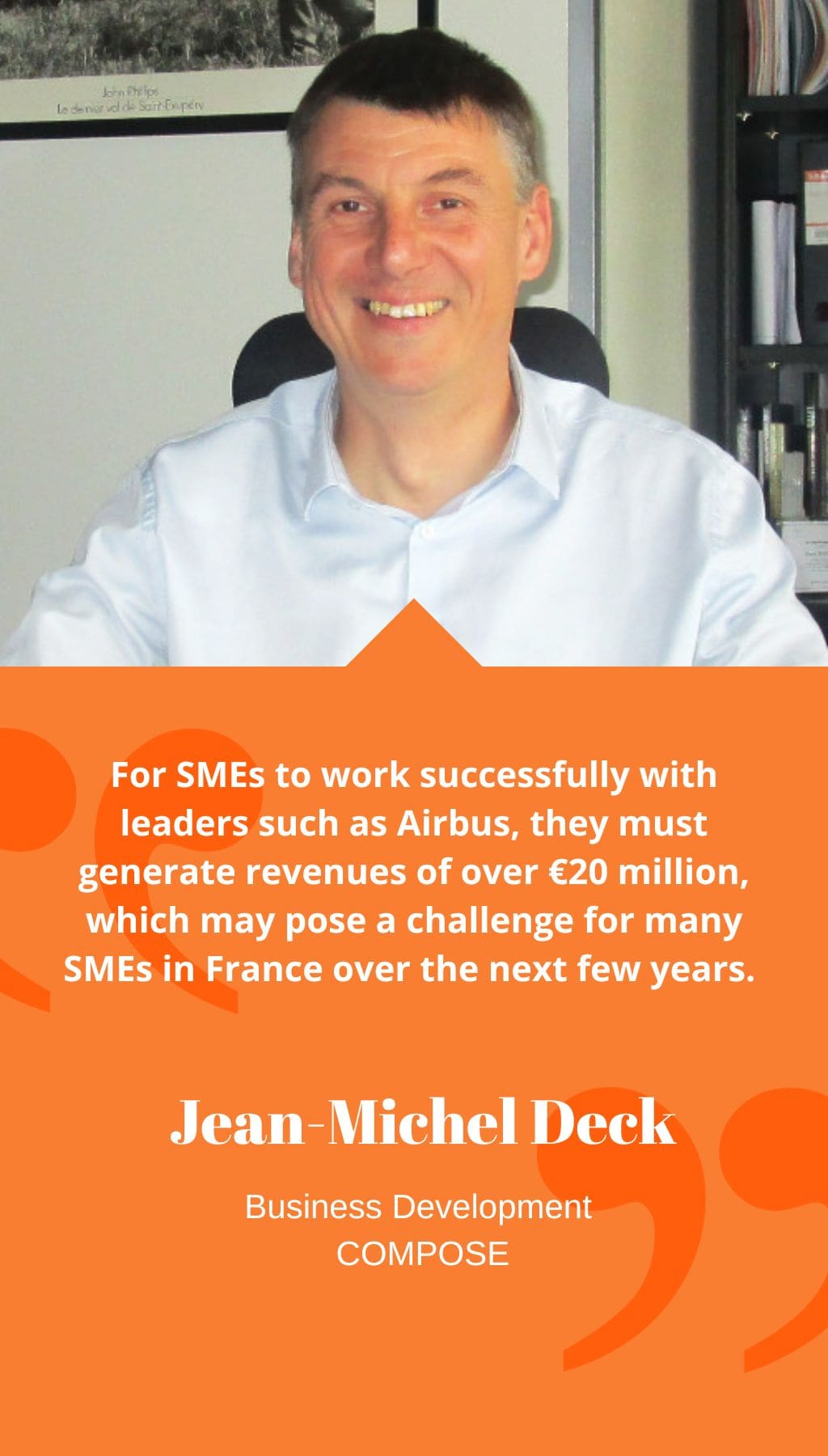
- France | 3 March 2018

Could you please provide us with an introduction to Compose and elaborate on the services it offers to the aerospace industry in the Auvergne-Rhône-Alpes region?
Compose, a company that initially focused on producing tools and molds for the automotive industry, made a strategic decision to expand its operations and integrate the aerospace market in 2005. Today, the company generates 60% of its revenue from the aerospace industry, and it has developed long-term relationships with a diverse range of leaders and small to medium-sized enterprises (SMEs) across Europe. While Compose aims to expand its geographical presence globally, it acknowledges that it will need to form partnerships to achieve its goal.
What is Compose’s current research and development focus?
Compose’s current research focus centers on developing composite process solutions that are tailor-made to meet the technical needs of the aerospace industry. One of the main challenges is to develop methods that transform materials that can be effectively manufactured in larger quantities and repeatedly exposed to extreme temperatures without deterioration in quality or performance.
Could you elaborate on your involvement in the “CleanSky” European project, and how does the project help Compose?
Compose is a part of the “CleanSky” project, which aims to reduce CO2, gas emissions, and noise produced by aircraft, promote collaboration within the industry, and enhance the competitive performance of individual companies. Through this program, leading companies fund SME activities. Compose has participated in several difficult application processes, and only a few projects are accepted each year. However, participating in such projects is beneficial due to the funding opportunities and valuable experience gained by the involved companies.
How does Compose differentiate itself from its competitors?
Compose distinguishes itself from competitors through innovation. The company has invested more than 10% of its revenues in research over the last decade, resulting in around 30 patents. The company’s unique selling point is its broad range of innovative solutions for various technical requests, particularly those involving composite materials. While many companies utilize similar technologies, Compose applies them in specific ways to stand out in the competitive market.
What are your thoughts on the rising global aerospace industry?
The main challenge for Compose is being an SME in an industry that requires a high production capacity as it enters a ramp-up phase. Two years ago, Boeing approached Compose, acknowledging the company’s specific knowledge and abilities that could significantly reduce development and production timeframes. However, the main obstacle is the requirement to be located in the US to work with Boeing.
Selling highly technical products like Compose’s takes longer as the company must find customers with specific needs and convince them that Compose’s technology is the right fit compared to other available technologies. While the aerospace industry is not particularly conservative, some methodologies require updating. According to Compose, the automotive industry has advanced its production methods significantly over the past 30 years, and the aerospace industry needs to make the same progress.
What is Compose’s future strategy?
Compose’s future strategy is to grow by acquiring other companies within the aerospace industry, rather than entering new markets. For SMEs to work successfully with leaders such as Airbus, they must generate revenues of over €20 million, which may pose a challenge for many SMEs in France over the next few years. However, Compose sees this as an opportunity for growth and development, rather than a barrier.














